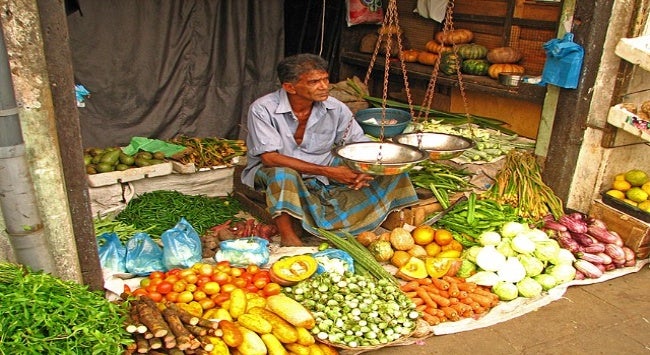2025 Local Elections in Sri Lanka:
Pressure on the NPP Government to Deliver
Rajni Gamage
13 May 2025Summary
Sri Lanka’s 2025 local elections saw the National People’s Power (NPP) government lead but with a reduced mandate, while the opposition remains fragmented. The NPP faces significant challenges in navigating economic recovery and volatile global dynamics.
Sri Lanka’s local government elections were held on 6 May 2025, after being delayed for three years due to the national economic crisis in 2022. The ruling party, the National People’s Power (NPP) secured approximately 43 per cent of the total vote share, a decline from the 61 per cent it achieved in the November 2024 general elections. Nevertheless, the party secured the majority of seats in 226 of 339 local government bodies.
Several factors contributed to the NPP’s electoral performance. The elections reflected a fragmented political landscape at the local level and the influence of local-level networks on voter behaviour. The NPP is also facing the challenge of managing high expectations amid a difficult economic recovery and political transition. The government is facing increasing criticism for delays in delivering key promises over the last six months since coming to power. These include economic relief, as the cost of living and poverty levels have continued to worsen since the 2022 crisis. The government has also struggled to meet public expectations on accountability on major national issues, including the 2019 Easter Sunday attacks and broader rule of law concerns.
While the NPP has stated that it is open to forming alliances with independent groups where necessary to establish local government bodies under its leadership, it has ruled out partnerships with former established parties it describes as “rejected by voters”. This position reflects the political culture shift the NPP has promised, in contrast to what it portrays as a corrupt old guard that protects its own interests at the expense of the public.
A Fragmented Opposition
The main opposition party, the Samagi Jana Balawegaya (SJB), secured around 21 per cent of the votes. In the lead-up to the local elections, the SJB did not form an alliance with the United National Party (UNP), the party it split from in 2020, despite interest from the UNP, due to ongoing political leadership differences. The UNP, led by former president, Ranil Wickremesinghe, secured just four per cent of the votes, confirming the continued decline of the party since 2020. Following the local elections, the SJB has indicated that it is willing to seek alliances with opposition parties to establish control of local government bodies.
A significant outcome of the election was the performance of the Sri Lanka Podujana Peramuna (SLPP), which secured around nine per cent of the votes. This marks a notable improvement from its showing in the 2024 general elections, where it succeeded in obtaining only about three per cent of the votes. The SLPP, led by the Rajapaksa family, lost substantial political legitimacy following the 2022 mass protests, during which then President Gotabaya Rajapaksa was forced to resign amid widespread blackouts and an economic collapse. Despite this, the party appears to be making a comeback under the leadership of its national organiser, M P Namal Rajapaksa. The SLPP’s resurgence, particularly in the rural Sinhala-Buddhist voters in the South, highlights both its local organisational strength and the continuing resonance of its ideological politics. It has criticised the NPP’s recent defence agreement with India, framing it as compromising Sri Lanka’s sovereignty and accusing the government of selling national assets to foreign powers as well.
In the North and East, Tamil nationalist parties, particularly the Ilankai Tamil Arasu Kachchi and the All Ceylon Tamil Congress, showed strong regional performances and made a comeback after losing ground to the NPP in the general elections. Among Muslim voters and the up-country Tamil electorate, disillusionment with traditional parties such as the Sri Lanka Muslim Congress, the All Ceylon Muslim Congress, and the Ceylon Workers’ Congress persisted and the shift toward the NPP, which began in the general elections, continued to significantly influence local election outcomes.
Navigating Global and Regional Volatility
Sri Lanka’s attempts to manage a balanced foreign policy with the two major powers in the region are facing some setbacks following a deepening strategic relationship with India, marked by a bilateral defence agreement in April 2025. At the same time, a proposed 44 per cent tariff on exports to the United States, its largest export market, poses a serious threat to economic stability. Sri Lanka is also preparing to reapply for the European Union’s General Scheme of Preferences-Plus (GSP+) scheme in 2027, with eligibility tied to its democracy and human rights record, especially the repeal of the Prevention of Terrorism Act (PTA). Although the NPP government pledged to repeal the PTA, it has taken no concrete action and has continued to use the law since coming to power. The GSP+ scheme is vital to Sri Lanka’s export economy, as the European Union is its second-largest export destination. The geopolitical landscape is further complicated by escalating tensions between India and Pakistan, which risk regional spillover effects.
Together, these developments present a major challenge to the NPP as it works to steer the country through an increasingly volatile geopolitical and economic landscape.
. . . . .
Dr Rajni Gamage is a Research Fellow at the Institute of South Asian Studies (ISAS), an autonomous research institute at the National University of Singapore (NUS). She can be contacted at r.gamage@nus.edu.sg. The author bears full responsibility for the facts cited and opinions expressed in this paper.
Pic Credit: Wikimedia Commons
-
 More From :
More From :
-
 Tags :
Tags :
-
 Download PDF
Download PDF



